Solar Electricity for the Developing World – 2018
Rancho Mastatal, Costa Rica
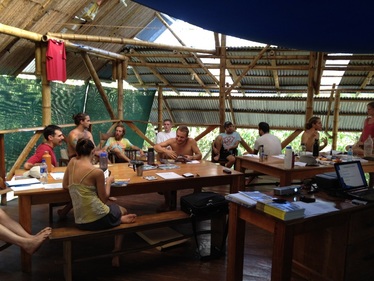
Learn
Work
Help
Contribute
Expand
Relax
March 2-10, 2018
Rancho Mastatal, Costa Rica • www.ranchomastatal.com
 US $1,675 includes:
US $1,675 includes:
• Instruction, tools, and materials
• In-country transportation
• Dorm lodging (upgrades possible)
• Three delicious meals a day
• Enjoyment of Rancho Mastatal trails, waterfalls, and reserve
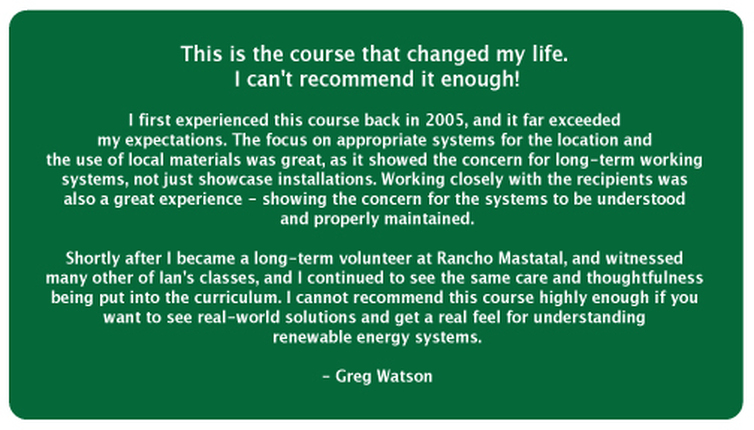
Hands-on Learning
Learn about solar electricity for the developing world in the developing world! This workshop provides an introduction to stand-alone solar-electric (PV) system design and installation, with a focus on small, rural systems. The workshop combines classroom sessions with a strong emphasis on real-world projects in the community, along with hands-on labs. You will have the opportunity to understand, design, and install lighting and cell-phone-charging systems that can dramatically improve the living conditions of the local people. This is an experiential program, with a real-world focus. Come and learn by doing, sharing, and experiencing on projects in the developing world.
 Topics include:
Topics include:
o Basics of Electricity
o Meters
o PV System Terminology & Components
o Designing for System Efficiency
o Energy Efficient Appliances
o Safe Installation
o PV Cells, Modules, & Arrays
o Series/Parallel Principles
o Establishing System Voltage
o Solar Site Analysis
o Orientation, Tilt Angles, & Shading
o Mounting Options and Hardware Selection
o Batteries
o Controllers
o Inverters
o Wiring, Overcurrent Protection, Disconnects, & Grounding
o Technology Transfer in the Developing World
For millions of poor, rural people around the world, solar electricity may provide the first electric lights a family has seen, replacing darkness at sunset with the opportunity to read, study, or recreate after a day of work. This hands-on workshop teaches how give this amazing technology to the people who are most in need. In the classroom portion, workshop participants will gain a basic understanding of the principles of small, stand-alone solar-electric systems and their design and installation. In labs and in three real-world installations, participants will learn in by doing, while helping improve the lives of local people.
In our fifteenth year at Rancho Mastatal, this workshop builds on past success in the region. Our program is focused on learning through hands-on work. We’ll spend about one-third of our time in the classroom, studying solar electricity technology basics. The rest of our time will be in the field or lab, getting our hands dirty, learning by doing. The course is taught in both English and Spanish. Price includes dorm bed or camping, all meals and in-country transportation. Private accommodation may be available at additional cost (contact Rancho Mastatal). Ask about options for family members not taking the workshop.
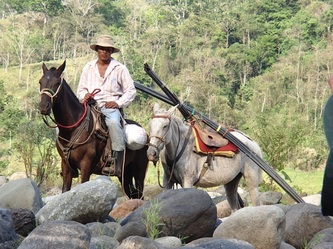
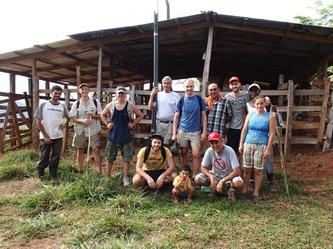
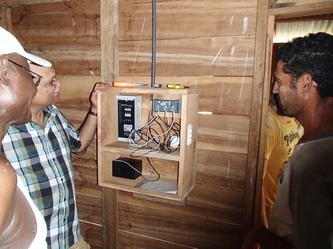
• Sustainable agriculture, forestry, and living
• Small renewable energy systems
• Micro-enterprise and ecotourism
• Composting and biodigester toilet and wastewater management systems
• Nature study and awareness
• Natural building
• Medicinal plants & indigenous skills
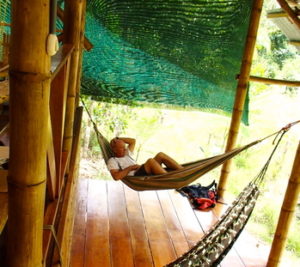 is an environmental learning and sustainable living center, retreat, and lodge located in the last virgin rainforest of Costa Rica’s Puriscal County. Rancho Mastatal practices and promotes living responsibly in the tropics, while educating its visitors about the significance and majesty of the world’s disappearing tropical forests. The site encompasses 500+ acres of picture-perfect waterfalls, crystal-clear rivers, and impressive trees in the transition zone between very wet and pre-montane rainforest in one of Costa Rica’s most undiscovered regions. The property shares a significant border with the splendid La Cangreja National Park, a protected area providing habitat for a number of endangered animals and flora, and containing some 2,000 plant species and varied fauna. Rancho Mastatal owns 19-kilometers of rainforest trails, connecting to a network of footpaths in La Cangreja National Park.
is an environmental learning and sustainable living center, retreat, and lodge located in the last virgin rainforest of Costa Rica’s Puriscal County. Rancho Mastatal practices and promotes living responsibly in the tropics, while educating its visitors about the significance and majesty of the world’s disappearing tropical forests. The site encompasses 500+ acres of picture-perfect waterfalls, crystal-clear rivers, and impressive trees in the transition zone between very wet and pre-montane rainforest in one of Costa Rica’s most undiscovered regions. The property shares a significant border with the splendid La Cangreja National Park, a protected area providing habitat for a number of endangered animals and flora, and containing some 2,000 plant species and varied fauna. Rancho Mastatal owns 19-kilometers of rainforest trails, connecting to a network of footpaths in La Cangreja National Park.
On site and in the community, the Rancho Mastatal crew builds using natural techniques, including the use of bamboo and cob, and supports the use of renewable energy systems. In their ongoing commitment to education and instruction, they organize and sponsor a wide array of workshops ranging from alternative design and construction to wilderness first response certification, and work with schools in both the United States and Costa Rica in offering customized educational programs on rainforest ecology, Latin culture, and Spanish and English as a second language. Rancho Mastatal welcomes volunteers, graduate students, interns, and all others in search of a memorable and unique tropical experience.
Our schedule is designed to give you time to enjoy the beautiful surroundings and people of Mastatal. We try to take a two-hour lunch/siesta/swimming break in the middle of each day. And we take the middle day of the workshop off from our project work, to go on recreational or cultural trips in the area. Our past groups have experienced an educational, exciting, and inspiring time while having fun with a great group of people.
Lodging & Food at Rancho Mastatal
Your workshop fee includes dorm lodging, all meals (primarily vegetarian, and sumptuous), and in-country transportation. Private or semi-private accommodations may be available at an additional cost—contact Rancho Mastatal. Ask us about options for family members not taking the workshop.
Please see www.ranchomastatal.com for more information. Please note that the folks at the Ranch do not check e-mail frequently, so please make your lodging upgrade inquiries well before the beginning of the workshop.
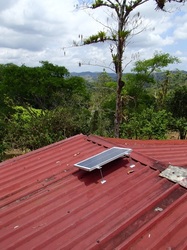
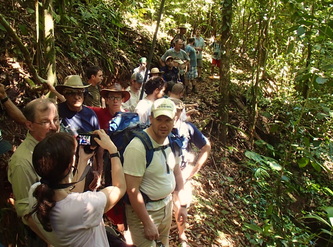
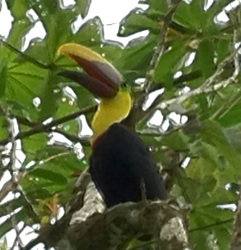
Costa Rica Language and Culture
 Costa Rica is a Spanish speaking country. However, in many places you will find people who speak some or plenty of English, and it is quite possible to get along with minimal Spanish. The people are used to tourists, and are very helpful. We recommend that you invest some time in learning at least some basic Spanish to facilitate your journey, and out of respect for the local people. Lonely Planet’s Costa Rica Spanish Phrasebook is an excellent, inexpensive introduction to the language. Our workshop will be taught in English, with Spanish translation for local participants if necessary.
Costa Rica is a Spanish speaking country. However, in many places you will find people who speak some or plenty of English, and it is quite possible to get along with minimal Spanish. The people are used to tourists, and are very helpful. We recommend that you invest some time in learning at least some basic Spanish to facilitate your journey, and out of respect for the local people. Lonely Planet’s Costa Rica Spanish Phrasebook is an excellent, inexpensive introduction to the language. Our workshop will be taught in English, with Spanish translation for local participants if necessary.
Ticos, as Costa Ricans are often called, are generally easy-going, open, helpful, and fun people. The country’s tranquil nature shows through in all aspects of the culture. Since 1949, the country has been without any armed forces. Costa Rica, despite its relatively small size, has an incredibly diverse geography. A series of volcanic mountain chains run down the center of the country. The highest point is Cerro Chirripó, which reaches 3,820 meters high, rivaling some of the taller mountains in the United States. The variety of flora and fauna found throughout the country is remarkable for a country so small. It is a nature lover’s paradise. The majority of people are white, with smaller percentages of blacks and Indians. Though not quite as “advanced” as the United States, Costa Ricans enjoy a life expectancy similar to that of Americans, perhaps a result of a more laid back lifestyle, and a healthy dose of fish, rice, and beans.
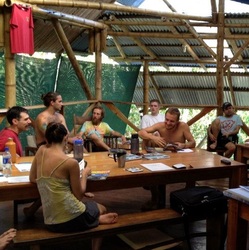 What to Wear & Bring
What to Wear & Bring
Mastatal in April will be warm, humid, but relatively dry. We recommend traveling as lightly as possible. Resist the temptation to bring everything you think you might possibly need. Light, long sleeved shirts and pants are recommended for sun, insect protection, and evening use. In the tropical climate, darker clothes will make you hot and attract bugs. Bring plenty of underclothes, and clothes that dry easily. Heavy jeans are thick and take an extremely long time to dry in the humid, tropical climate where you will be staying.
Bring a good hat to shade your eyes and forehead and to keep your head dry if it rains. If you are light skinned or very heat sensitive, bring a wide brimmed hat. You will be in a tropical forest, and we will be doing physical work, so make sure you bring a pair of shoes that you don’t mind getting dirty. Rubber boots are very popular in Costa Rica, and can be purchased in country if necessary. Work gloves will be handy for protection from blisters, stones, dirt, and plants. A local family is available to do laundry for a fee, or folks can do their own in one of the outdoor sinks/basins.
Here is a list of smaller items that you may find useful:
• Small flashlight with spare bulb and batteries (rechargeable)
• Travel alarm clock or watch
• Swiss Army-style pocketknife
• A section of cord or line (clothesline or for a thousand other purposes)
• Sewing kit
• Sunglasses (good ones as the sun is very, very strong)
• Toiletries (use soaps, shampoos and toothpastes that are biodegradable)
• Sunblock (don’t skimp on sunblock, and use the biodegradable type)
• Insect repellent
• Water bottles
• First-aid kit
• Prescription medicines (many are available cheaper in Costa Rica, but don’t take your chances)
We recommend that you carry your gear in a large, internal frame backpack. It’s less tiresome to carry your load on your back, although you have to be aware when in crowded places. Make sure that you choose a good quality pack that won’t rip, break or become damaged in any way as it may get “tested.” In addition, a smaller backpack is useful when doing shorter day hikes.
There is only one public telephone in the town of Mastatal. There is also a police radio in town for emergencies. Internet service is sporadically available in Mastatal in a few different forms, but you shouldn’t count on it. The ranch has a telephone for emergency use. Check with your wireless carrier for voice, text, or data plans. My experience is that voice and data are relatively costly, while modestly priced text plans can keep you in touch with family and friends without absorbing as much of your $ and attention.
Travel
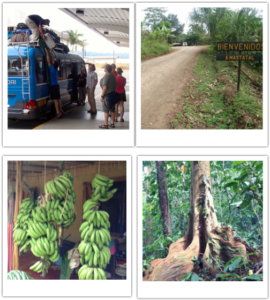 For this workshop, we will be meeting and traveling as a group once participants arrive in San Jose, Costa Rica. You will need to make your own arrangements to fly into the Juan Santamaría international airport (SJO) in Alajuela, the primary international airport in Costa Rica, which is approximately 17 kilometers west of San José. If you are willing to carry some gear with you from the states, please contact me.
For this workshop, we will be meeting and traveling as a group once participants arrive in San Jose, Costa Rica. You will need to make your own arrangements to fly into the Juan Santamaría international airport (SJO) in Alajuela, the primary international airport in Costa Rica, which is approximately 17 kilometers west of San José. If you are willing to carry some gear with you from the states, please contact me.
Participants must by ready to meet outside the San Jose, Costa Rica airport (airport code SJO) by 3:00 p.m. at the latest on Saturday, April 2, 2016, and will be returned to the same airport by 11 a.m. on Sunday, April 10, 2016. Please plan your flights accordingly, with
leeway for the vagaries of travel. Those not at the meeting place at the appointed time on April 2 will need to make their own
arrangements to get to the ranch.
On our final night in Mastatal, we’ll have a farewell party, and perhaps some entertainment. On the following morning, participants will travel by shuttle bus to the San Jose airport, arriving by 11 AM on Sunday, April 10. If you need to stay overnight in the San Jose area on either end of your trip, or want ideas for other travel within the country, we can give you advance advice, or talk while we are together in Mastatal.
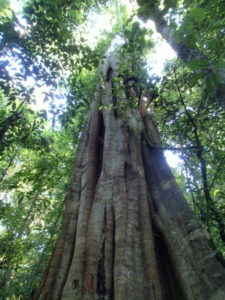 Costa Rica in March will be warm, humid, and probably dry. We recommend traveling as lightly as possible. Resist the temptation to bring everything you think you might possibly need. Light, long sleeved shirts and pants are recommended for sun, insect protection, and evening use. In the tropical climate, darker clothes will make you hot and attract bugs. Bring plenty of underclothes, and clothes that dry easily. Heavy jeans are thick and take an extremely long time to dry in the humid, tropical climate where you will be staying.
Costa Rica in March will be warm, humid, and probably dry. We recommend traveling as lightly as possible. Resist the temptation to bring everything you think you might possibly need. Light, long sleeved shirts and pants are recommended for sun, insect protection, and evening use. In the tropical climate, darker clothes will make you hot and attract bugs. Bring plenty of underclothes, and clothes that dry easily. Heavy jeans are thick and take an extremely long time to dry in the humid, tropical climate where you will be staying.
Bring a good hat to shade your eyes and forehead and to keep your head dry if it rains. If you are light skinned or very heat sensitive, bring a wide brimmed hat. You will be in a tropical forest, and we will be doing physical work, so make sure you bring a pair of shoes that you don’t mind getting dirty. Rubber boots are very popular in Costa Rica, and can be purchased in country if necessary. Work gloves will be handy for protection from blisters, stones, dirt, and plants. A local family is available to do laundry for a fee, or folks can do their own in one of the outdoor sinks/basins.
Here is a list of smaller items that you may find useful:
• Small flashlight with spare bulb and batteries (rechargeable)
• Travel alarm clock or watch
• Swiss Army-style pocketknife
• A section of cord or line (clothesline or for a thousand other purposes)
• Sewing kit
• Sunglasses (good ones as the sun is very, very strong)
• Toiletries (use soaps, shampoos and toothpastes that are biodegradable)
• Sunblock (don’t skimp on sunblock, and use the biodegradable type)
• Insect repellent
• Water bottles
• First-aid kit
• Prescription medicines (many are available cheaper in Costa Rica, but don’t take your chances)
We recommend that you carry your gear in a large, internal frame backpack. It’s less tiresome to carry your load on your back, although you have to be aware when in crowded places. Make sure that you choose a good quality pack that won’t rip, break or become damaged in any way as it may get “tested.” In addition, a smaller backpack is useful when doing shorter day hikes.
If you can’t join us in person, you can still support
the program with your financial contribution.
Donations help purchase tools and materials
for workshops in the Mastatal community.
Donations of any amount are appreciated.
Cancellation Policy: If a workshop is cancelled (rare), you will receive a full refund. If you cancel more than 90 days before start of workshop, you will receive a 75% refund; 30-90 days before workshop, 50% refund; less than 30 days before start of workshop, no refund.
Program information and logistics:
Ian Woofenden, Workshop Coordinator
PO Box 1001, Anacortes, WA 98221
360-770-1520
